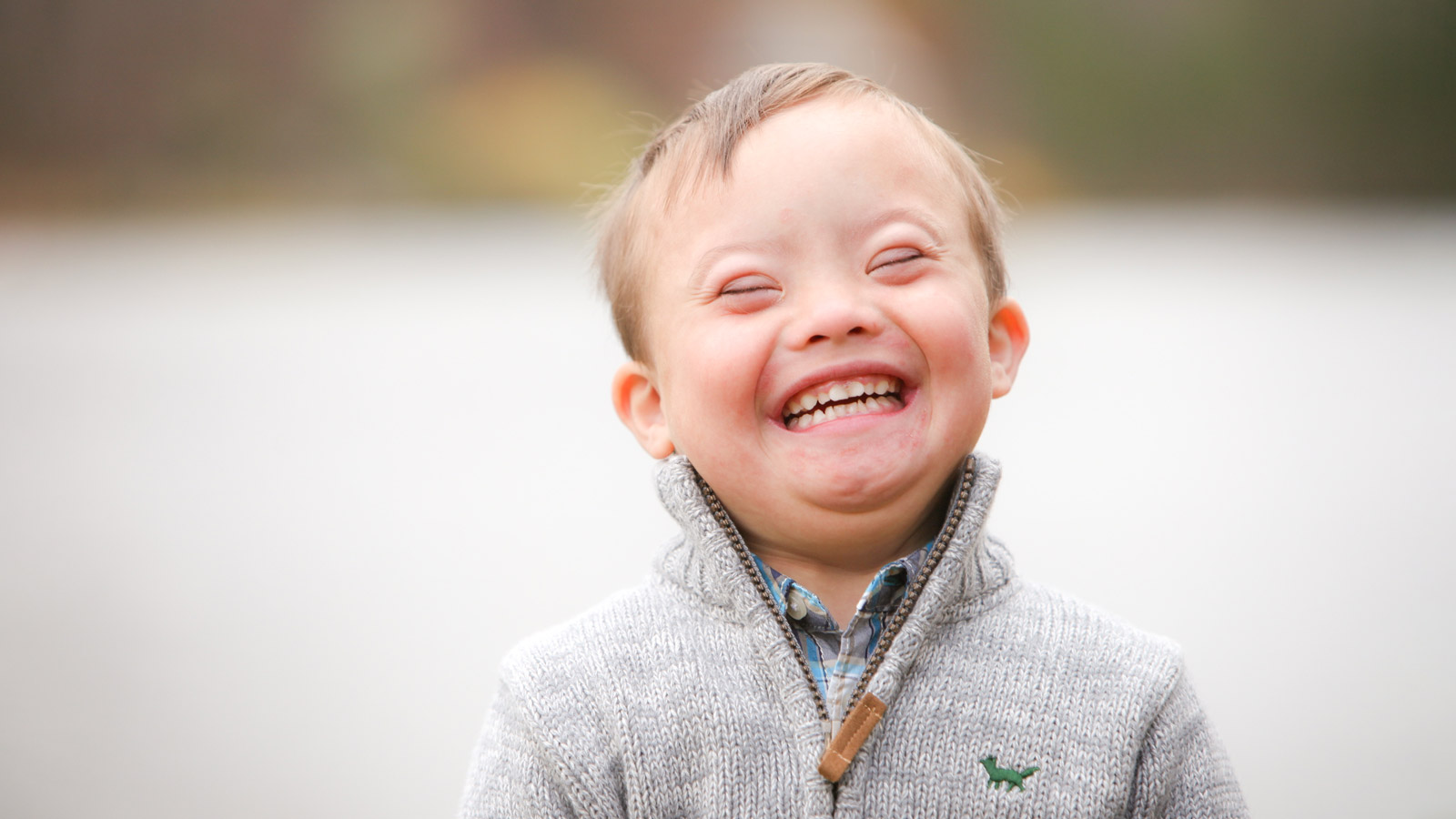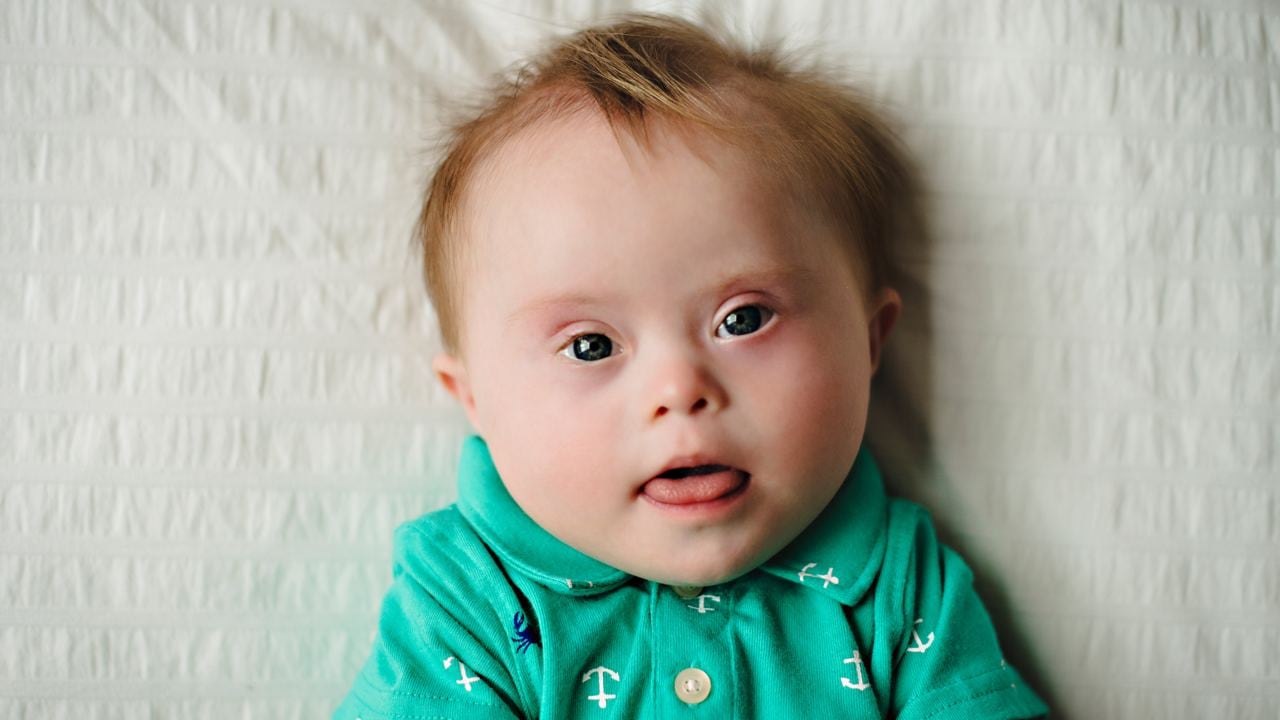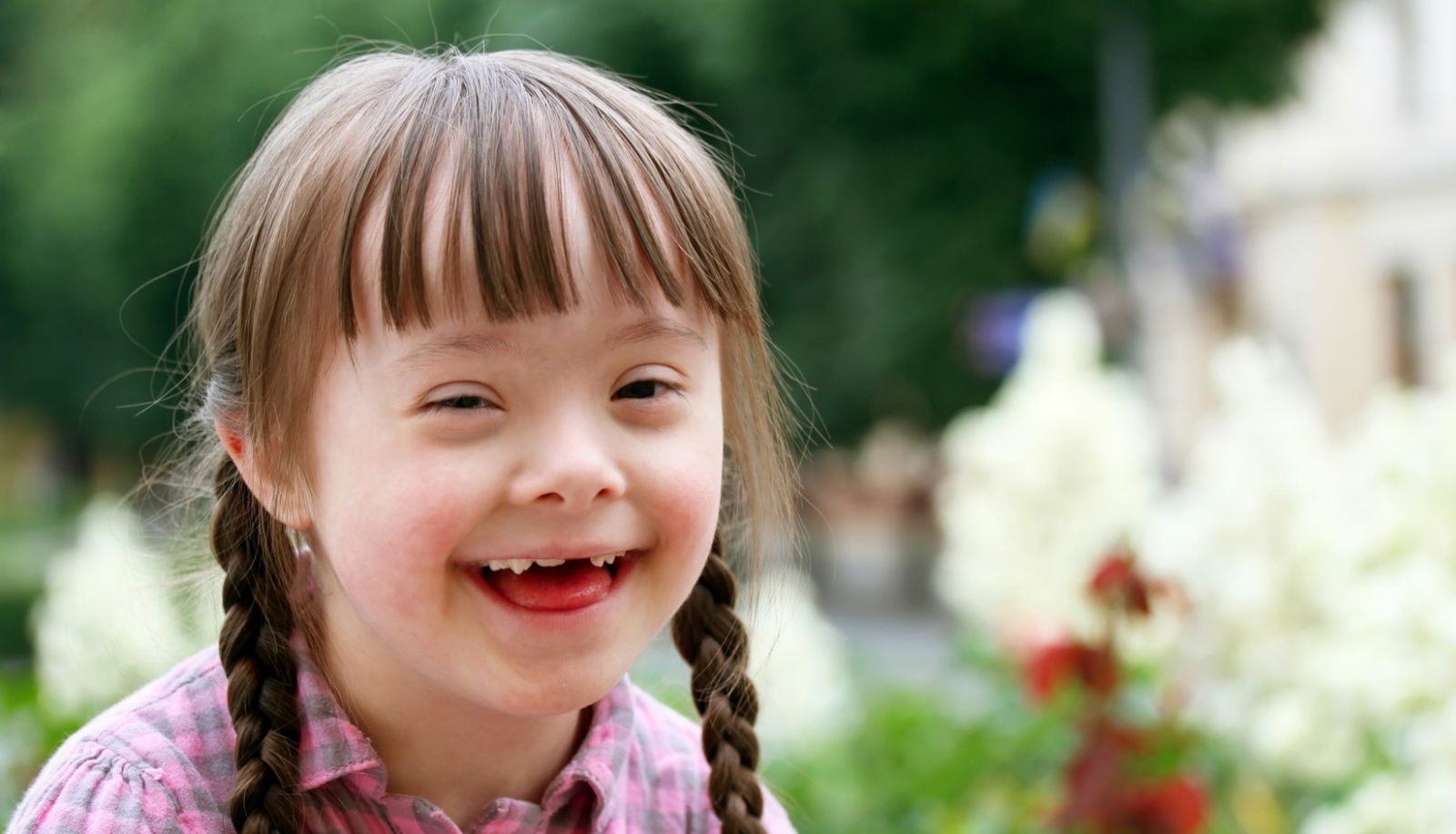When we talk about children, it's pretty much a given that each one brings their own special light into the world, you know? And that's truly the case for down syndrome kids too, who just like any other child, are full of unique potential and deserve all the love and support we can offer. It’s a topic that, honestly, touches many families and communities, and understanding it better really helps us create a more welcoming place for everyone.
This particular genetic condition, often called Trisomy 21, means a child is born with an extra copy of chromosome 21, or maybe even an extra piece of that chromosome. It’s a set of cognitive and physical symptoms that come from having this extra genetic material. And, you know, it’s actually the most common chromosomal condition that people are born with, so it's something many folks encounter.
So, we're going to take a bit of time here to explore what Down syndrome is all about, what it means for children and their families, and how we can all play a part in supporting these wonderful young people as they grow. We'll also touch on some of the common questions people have, because, well, that's just helpful, isn't it?
Table of Contents
- What Exactly is Down Syndrome?
- How Down Syndrome Happens: A Matter of Chance
- Looks and Learning: Traits of Down Syndrome Kids
- Health Matters: Common Conditions for Kids with Down Syndrome
- Nurturing Growth: Supporting Development in Children with Down Syndrome
- Living Well: Embracing Life with Down Syndrome
- Before Birth: Understanding Prenatal Tests
- Frequently Asked Questions About Down Syndrome Kids
What Exactly is Down Syndrome?
Down syndrome, or Trisomy 21 as it's also known, describes a set of cognitive and physical symptoms that come from having an extra copy or part of a copy of chromosome 21. Chromosomes, you know, are these small packages of genes found inside the body's cells. They carry all the instructions that tell our bodies how to grow and work.
Normally, a person has 46 chromosomes in each cell, arranged in 23 pairs. But, in the case of Down syndrome, a child is born with an extra copy of chromosome 21, making a total of 47 chromosomes instead of 46. This extra genetic material is what leads to the features and developmental differences associated with the condition.
It's a genetic condition, really, that impacts how a person's body and brain develop. The presence of this extra chromosome affects the way the child's brain and body grow, leading to certain physical characteristics and, typically, some level of intellectual disability, along with other physical and learning difficulties. It's something that just happens, quite naturally, during development.
How Down Syndrome Happens: A Matter of Chance
One thing that's really important to get straight about Down syndrome is that it happens by chance. It's not something that parents did or didn't do, which, you know, can be a big worry for some families. It's a condition that can't be prevented, and it's not caused by anything specific a parent might have done before or during pregnancy.
The extra chromosome occurs randomly, often during the formation of the egg or sperm, or early in the baby's development. It's just one of those things that can occur in human biology. So, really, it's not anyone's fault, and that's a key message for families to hear and understand, because, well, sometimes people might feel otherwise.
This genetic occurrence is, in a way, just a part of the natural variation that happens in human reproduction. It's not something you can control, or, you know, change. Understanding this can help families move past any feelings of blame and focus on supporting their child.
Looks and Learning: Traits of Down Syndrome Kids
Children and adults with Down syndrome often have distinct facial and body features. While not all people with Down syndrome have the exact same features, some of the more common ones might include a flattened facial profile, upward slanting eyes, a single deep crease across the palm of the hand, and a smaller stature. These physical traits are a part of the condition, and they are pretty much recognizable to many.
Beyond the physical appearance, the extra chromosome impacts a person's ability to think, learn, and reason. Down syndrome is a genetic condition that causes intellectual disability, which means there can be varying degrees of learning problems. Some children might have mild learning difficulties, while others might face more significant challenges.
It's important to remember, though, that every child with Down syndrome is an individual, and their abilities and learning styles will differ. They all have the capacity to learn and grow, just perhaps at a different pace or in a different way. You know, like any group of children, they are all unique learners, and that's actually something to celebrate.
Health Matters: Common Conditions for Kids with Down Syndrome
People with Down syndrome are, unfortunately, at a greater risk for a number of health problems and conditions compared to people who do not have Down syndrome. This is something that families and medical professionals need to be aware of. For instance, a child with Down syndrome may have heart issues, which can sometimes be present from birth.
Other health considerations can include certain birth defects, hearing or vision problems, thyroid conditions, and digestive issues. It's a pretty wide range of potential health concerns that might need attention. But, you know, the good news is that fortunately, many of these health problems can be managed well with proper medical care and early intervention.
Regular check-ups, specialized screenings, and ongoing support from a team of healthcare providers are really important for children with Down syndrome. With the right care, many of these health challenges can be addressed, helping these kids to live healthier, more comfortable lives. It's about being proactive, you know, and making sure they get the care they need.
Nurturing Growth: Supporting Development in Children with Down Syndrome
Supporting the growth and development of down syndrome kids is something that truly matters. Early intervention services are, like, incredibly helpful and can make a big difference. These services might include things like physical therapy to help with motor skills, speech therapy to assist with communication, and occupational therapy to help with daily living activities.
Educational support is also very, very important. Many children with Down syndrome thrive in inclusive educational settings where they can learn alongside their peers. Tailored learning plans and individualized education programs (IEPs) help ensure that their specific learning needs are met, allowing them to progress at their own pace and really flourish.
Creating a supportive home environment, full of encouragement and opportunities for learning and play, is also key. Families play a central role in fostering their child's abilities and building their confidence. It’s about celebrating every little milestone, you know, and providing a loving space where they can be themselves and grow.
Community involvement, too, is pretty vital. Connecting with other families who have children with Down syndrome can offer a network of support, shared experiences, and valuable advice. There are many organizations and groups dedicated to supporting individuals with Down syndrome and their families, providing resources and a sense of belonging.
Living Well: Embracing Life with Down Syndrome
The lives of people with Down syndrome are, actually, rich and meaningful. They contribute to their families and communities in countless ways, bringing joy, unique perspectives, and a lot of warmth. Focusing on their abilities, rather than just the challenges, is really important for everyone involved. They can achieve so much, given the right support and opportunities.
Many individuals with Down syndrome go on to lead fulfilling lives, participating in sports, arts, and community activities. Some pursue higher education, and many hold jobs, living independently or with support. The possibilities are, in a way, expanding all the time, as society becomes more inclusive and understanding.
Dispelling myths and misconceptions about Down syndrome is also a big part of creating a more accepting world. People with Down syndrome have feelings, dreams, and aspirations just like anyone else. They deserve respect, dignity, and the chance to live their lives to the fullest. It's about seeing the person first, you know, beyond the diagnosis.
Embracing neurodiversity and celebrating the differences that make each person unique is something we can all do. Down syndrome kids are, in some respects, just kids who happen to have an extra chromosome. They are capable of love, laughter, learning, and so much more, and they enrich the lives of those around them in truly special ways.
Before Birth: Understanding Prenatal Tests
For expectant parents, tests during pregnancy can provide information about a child's chance of having Down syndrome. These tests are, you know, typically offered as part of prenatal care. There are different types of tests available, and they can offer varying levels of certainty.
Screening tests, like blood tests and ultrasounds, can tell you if there's a higher chance of Down syndrome. These tests don't give a definite diagnosis, but they can indicate if further testing might be a good idea. They are pretty much a first step for many parents who want to know more.
Diagnostic tests, such as amniocentesis or chorionic villus sampling (CVS), can provide a definitive answer. These tests involve taking a sample of tissue or fluid to analyze the baby's chromosomes. Deciding whether to have these tests is a very personal choice for parents, and it's something that, honestly, involves a lot of thought and discussion with healthcare providers.
The information gained from these tests can help parents prepare and make informed decisions about their pregnancy and the future care of their child. It's about having knowledge, really, so that families can plan and get ready for whatever comes next. For more detailed information, you could visit the CDC's page on Down Syndrome, which is a good resource.
Frequently Asked Questions About Down Syndrome Kids
What causes Down syndrome in children?
Down syndrome is caused by an extra copy of chromosome 21, or sometimes an extra piece of that chromosome, in a person's cells. This extra genetic material is what leads to the physical and cognitive characteristics associated with the condition. It's something that, you know, just happens by chance during early development and isn't caused by anything a parent did or didn't do.
Can children with Down syndrome live full lives?
Absolutely, children with Down syndrome can and do live full and meaningful lives. With proper medical care, early intervention services, and supportive environments, individuals with Down syndrome can achieve many milestones, participate in their communities, pursue hobbies, and form strong relationships. They are, in a way, just like anyone else with dreams and goals.
What kind of support do kids with Down syndrome need?
Kids with Down syndrome often benefit from a range of support services, including therapies like physical, speech, and occupational therapy. Educational support, such as individualized learning plans, is also very helpful. Beyond that, they need a loving and encouraging family environment, community inclusion, and access to good healthcare. It's about providing opportunities for them to thrive, you know, and reach their unique potential.
Understanding and embracing children with Down syndrome means recognizing their individual strengths and supporting their journey. They bring so much to our lives, and by working together, we can ensure they have every chance to shine. It's a pretty wonderful thing, actually, to be a part of that.



Detail Author:
- Name : Karolann Flatley
- Username : jalyn.jacobs
- Email : bennett82@watsica.com
- Birthdate : 1971-04-24
- Address : 4667 Fern Manors Buckridgeside, NM 45887-0167
- Phone : (321) 324-4120
- Company : Hane and Sons
- Job : Obstetrician
- Bio : Ex quo architecto quia tenetur rerum. Quo maxime dicta quasi quod. Dolores voluptatum sunt quas in. Ipsa dolor temporibus consequatur ea sequi consequuntur officia.
Socials
linkedin:
- url : https://linkedin.com/in/hansenr
- username : hansenr
- bio : Et modi qui modi aut iusto et.
- followers : 1777
- following : 2847
instagram:
- url : https://instagram.com/retta2469
- username : retta2469
- bio : Velit ad quis quas qui ea vero. Quidem qui illo provident est dicta omnis.
- followers : 5282
- following : 2318
facebook:
- url : https://facebook.com/hansen1984
- username : hansen1984
- bio : Suscipit enim accusantium saepe facilis fuga.
- followers : 6417
- following : 1191

